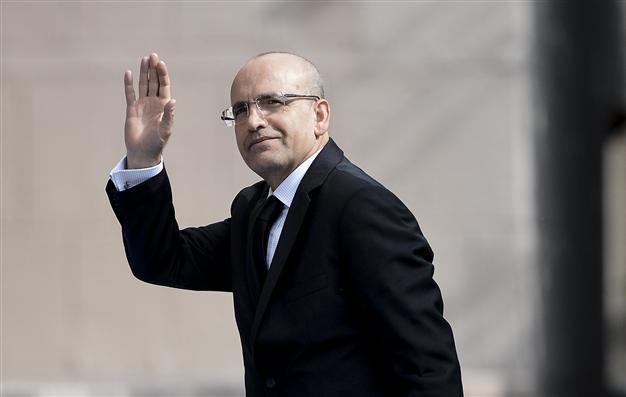Ministers at odds over Turkish Central Bank policies
ANKARA

Finance Minister Mehmet Şimşek. AA Photo
Finance Minister Mehmet Şimşek and Economy Minister Nihat Zeybekci have continued to make contradicting statements over the Central Bank’s monetary policy, despite the latter expressing discomfort at the perception of a row within the government over the issue.Zeybekci, who has been a vocal advocate of low interest rates, once against blasted the current level of interest rates in Turkey for “hindering investments” in the country.
“It doesn’t matter what I, the Central Bank or economists say, the real market doesn’t see current interest rates as bearable,” Zeybekci said in a press conference on Sept. 12.
“This interest rate is not normal and no one would invest at this level,” he added.
President Recep Tayyip Erdoğan has been urging the Bank for sharper rate cuts to spur growth and he has been accusing of acting in line with the interests of groups that he calls the “interest rate lobby.”
Zeybekci, who has been Turkey’s economy minister since December 2013, has been one of the most vocal supporters of Erdoğan’s economic line.
Deputy Prime Minister Ali Babacan and Finance Minister Şimşek, meanwhile, are perceived as the guardians of the Central Bank’s independence and are more skeptical of the need for interest rate cuts.
In the press conference, Zeybekci expressed his discontent with the perception of a division in the government and the idea that there are “two different views over the Central Bank’s interest rate policies.”
However, at around the same time, Şimşek was saying that he disapproves of criticisms targeting the Central Bank, speaking on a live program jointly broadcast on NTV and CNBC-e.
“I don’t find criticisms of the Central Bank correct,” Şimşek stated, reiterating his wish to avoid commenting on monetary policy and interest rates issues.
“The Central Bank is independent and protection of the Bank’s reputation is a must for Turkey,” he stressed.
Since an emergency rate hike in January, which saw the main one-week policy rate more than doubled, the Bank cut the one-week repo rate by 175 basis points in three months, fanning criticism from some economists that it was caving in to political pressure despite persistent inflation.
Last month, the Bank unexpectedly lowered its overnight lending rate, in a move seen as having limited easing impact and intended more as a signal to the government that it is supporting the economy.
Central Bank Governor Erdem Başçı defended the tight monetary policy on Sept. 11, saying a steep reduction in rates would cause a rush to dollar hoarding and a return to the weakness of the Turkish Lira.
















